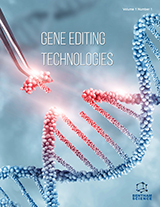Abstract
Cancer is a collective term for a group of deadly diseases that can affect and
spread to various parts of the body. The main feature of cancer is the uncontrolled
growth of cells due to a defect in the genes that control normal cell division and
growth. As per the latest statistics, cancer is the second-leading cause of death globally,
and almost 70% of these deaths are reported in low- and middle-income countries.
Chemotherapy and irradiation are the most common cancer treatments; however, the
development of resistance and severe side effects are the stumbling blocks of these
methods. Hence, current research has focused more on developing novel drug leads
from new sources like algae and fungi. Fungi, such as mushrooms, are an inexhaustible
source of various anticancer biomolecules, and the 21st century saw a staggering
interest in the anticancer potential of mushrooms among the western exploration clique.
Their cellular and humoral immunity-boosting properties have made them better
candidates for anticancer drug discovery. The mushrooms attributed with cytotoxic
potential belong to various genera like Vargenus Agrocybe, Amanita, Antrodia,
Agaricus, Albatrellus Conocybe, Clitocybe, Cordyceps, Clavatia, Flammulina, Funlia,
Fomes, Galerina, Gymnopilus, Ganoderma, Hypholoma, Inonotus, Inocybe, Lentinula,
Lactarius, Panaeolus, Psilocybe, Plerurotus, Pholiotina, Pluteus, Russula, Suillus,
Schizophyllum, Trametes, Xerocomus, and Weraroa. Hence, the current chapter
focuses on the botanical description, phytochemistry, mechanism of action, and clinical
status of various vital mushrooms acting as essential libraries of anticancer drug leads.






















